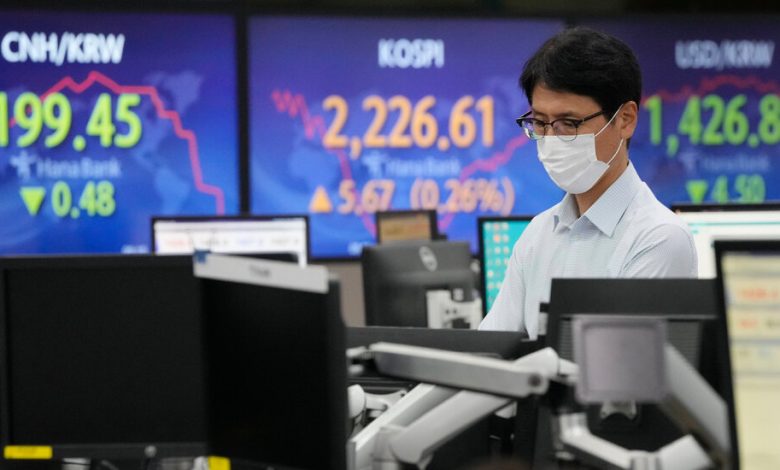Markets Calm Down After Recession Fears Drive Steep Drops

Asian markets were mostly flat on Tuesday after days of worrisome economic news and tightening interest rates had driven down shares around the world.
The Nikkei in Japan climbed 0.83 percent, while South Korea’s Kospi composite index was down 0.39 percent. While the Hang Seng Index in Hong Kong was down 0.8 percent. Oil futures were up less than 1 percent.
The Shanghai composite index was little changed. Reuters reported that Chinese market regulators had asked brokers to help stabilize domestic stock markets ahead of an important Communist Party congress next month.
The relative calm followed another day of losses on Wall Street. The S&P 500 hit its lowest level for the year and was on pace for a third straight quarter of losses, the first since the 2008 global financial crisis.
Investors are concerned about the increasing likelihood of a recession, as central banks continue to raise interest rates to contain inflation. Several central banks including the U.S. Federal Reserve and the Bank of England said last week that they would raise rates. More countries are expected to follow this week.
“It’s looking very clear now that the major central banks are not going to blink in bringing down inflation at the cost of growth,” said Rob Subbaraman, head of global macro research at Nomura.
Analysts have said that recession appears more likely for the United States, Europe and Britain in the coming quarters. “I’m more worried about Europe than the U.S. in terms of the depth of the recession,” Mr. Subbaraman added.
In Britain, the pound fell to an all-time low against the dollar on Monday before recovering slightly. Markets continued to be roiled by a British government plan released Friday that would focus on tax cuts to spur growth.
The fall in the value of the pound and rising yields on British bonds indicates that the market has lost confidence in the government’s plan, ANZ Research said in a report.
“The question of credible policy delivery lies at the heart of GBP weakness,” it added, referring to the pound. “Maintaining market confidence amid the current sell-off in global financial assets and U.K.’s rising financing requirements is crucial.”
